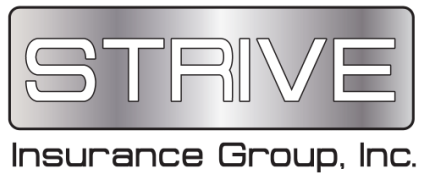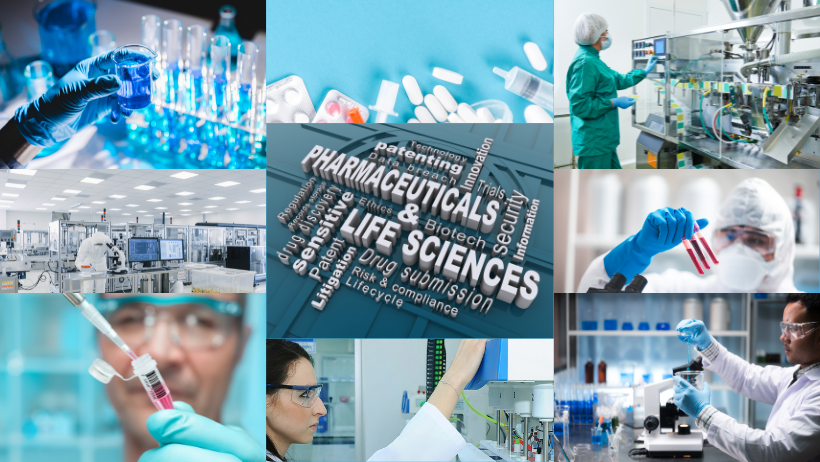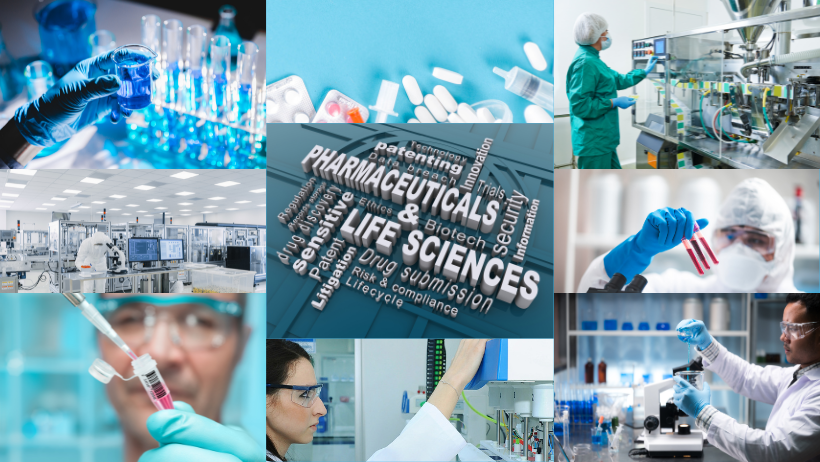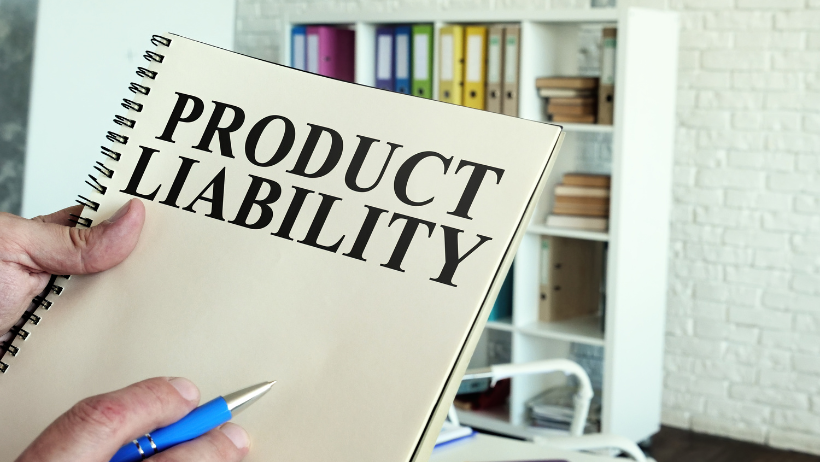|
In the innovative world of biotechnology, firms are at the forefront of scientific breakthroughs, from pharmaceuticals to genetic research. However, with great innovation comes great risk, particularly in terms of liability. Professional liability coverage, also known as errors and omissions (E&O) insurance, is crucial for biotech firms. Here’s why:
1. Protection Against Legal Action Biotech firms are involved in complex and often groundbreaking research and development. The outcomes can sometimes lead to unexpected side effects or failures that might result in harm or financial loss to a client or third party. Such scenarios can lead to costly lawsuits. Professional liability insurance helps cover the legal fees and settlements, which can be exorbitant, especially in high-stakes fields like biotechnology. 2. Maintaining Credibility and Trust For a biotech firm, maintaining credibility is crucial. A single lawsuit can tarnish a company's reputation, affecting its ability to secure funding or partnerships. Professional liability insurance not only covers financial losses but also helps in managing public relations crises, allowing a company to handle legal battles discreetly and efficiently. 3. Compliance with Industry Standards In many parts of the world, regulatory bodies require biotech firms to have professional liability insurance as part of their licensing criteria. This is not just a bureaucratic tick-box but a safeguard that ensures the firm can cover damages if something goes wrong, thus protecting consumers and business partners. 4. Encourages Risk Taking and Innovation Knowing that there is a safety net in place, biotech firms can pursue innovative research and development with less fear of financial ruin from potential legal issues. This encouragement of risk-taking is essential in a field that relies on constant innovation to push the boundaries of science. 5. Financial Stability Litigation can be incredibly costly. Without appropriate insurance, a biotech firm might face financial instability or even bankruptcy in the event of a significant claim. Professional liability insurance provides a buffer that can help ensure the company survives financially after facing a claim. 6. Attracting Investment Investors are more likely to invest in companies that have managed their risks well. Professional liability insurance is often seen by investors as a sign of prudent management and operational maturity, making the firm a more attractive investment opportunity. 7. Global Market Accessibility Biotech firms often work in multiple countries, each with its own legal and regulatory requirements. Professional liability insurance can be tailored to meet these diverse requirements, facilitating smoother international operations and expansion. The biotech sector's inherent risks demand robust risk management strategies, with professional liability coverage being a cornerstone. Such coverage not only protects against potentially devastating financial and reputational damage but also supports the firm’s operational and strategic objectives. In the volatile yet exciting world of biotech, professional liability insurance isn’t just an option—it’s an essential part of ensuring a firm’s longevity and success. The medical device industry plays a pivotal role in global healthcare by providing tools and technologies that diagnose, prevent, monitor, and treat a wide array of diseases and conditions. However, the development, manufacturing, and distribution of medical devices entail significant risks, necessitating comprehensive insurance coverage to protect against potential liabilities. Here are three critical types of insurance every medical device business should consider:
1. Product Liability Insurance What It Covers: Product liability insurance is essential for any business that designs, manufactures, or sells medical devices. This type of insurance protects the company if a product it sells causes bodily injury or property damage to a third party. Given that medical devices can directly impact patient health, the risks are particularly high. Product liability claims can arise from manufacturing defects, design flaws, or inadequate instructions/warnings. Why It’s Important: In the medical device field, even a small defect can lead to significant adverse outcomes for users. The costs associated with defending these claims and any resultant settlements can be astronomical. Product liability insurance helps ensure that a company can survive financially after such claims. 2. Professional Liability Insurance What It Covers: Also known as errors and omissions (E&O) insurance, this coverage is crucial for businesses involved in the service side of medical devices, such as providing training on equipment use, maintenance, or calibration. It protects against claims of negligence or harm that result from mistakes or failure to perform. Why It’s Important: Medical device businesses often provide highly technical and specialized advice and services. Errors in these areas can lead to serious consequences, potentially harming patients and exposing the business to liability. Professional liability insurance helps cover the legal costs and any damages awarded, protecting the company’s financial health. 3. Cyber Liability Insurance What It Covers: Cyber liability insurance is increasingly important for medical device companies, especially those involved in producing and managing devices connected to the internet or other networks (IoMT - Internet of Medical Things). This insurance covers the risks related to data breaches, cyber-attacks, and other technology-related vulnerabilities, including costs related to recovery, notification, legal fees, and any resulting fines or penalties. Why It’s Important: Medical devices often handle sensitive patient data, making them a target for cybercriminals. A breach can compromise patient privacy, result in regulatory penalties, and damage the company’s reputation. Cyber liability insurance helps mitigate these risks by providing financial and expert support in the event of a cyber incident. Navigating the complexities of the medical device industry requires a thorough understanding of the risks involved. By securing product liability, professional liability, and cyber liability insurance, medical device businesses can safeguard their operations, protect their financial stability, and maintain their reputation in a competitive and rapidly evolving market. Together, these insurance coverages form a robust shield against many of the common hazards these businesses face, allowing them to focus on innovation and growth with peace of mind. In the life sciences industry, we know you have to innovate to stay ahead. Companies in the industry compete and strive to be the first to develop new drugs, supplements, medical devices, and technologies that promote better health. Let us put together a specialized Life Sciences Insurance solution that minimizes loss potential and protect your bottom line. The biotechnology industry, known for its ground-breaking research and innovation, is also a sector fraught with significant risks. From the uncertainties of research and development to the complexities of regulatory compliance, biotech firms navigate a landscape where the stakes are high. This is where insurance solutions play a pivotal role. Tailored insurance coverages can provide a safety net, mitigating the financial impact of various risks. Let’s explore the common risks faced by biotech firms and the corresponding insurance solutions that can help manage these challenges:
1. Research and Development (R&D) Uncertainties Mitigated by: Product Liability and Clinical Trial Insurance Risk Overview: The uncertain nature of R&D can lead to unexpected outcomes, including project failures or delays. Insurance Solution: Product liability insurance protects against claims related to product safety and efficacy. For clinical trials, specific insurance policies are available to cover the risks associated with testing on human subjects. 2. Regulatory Compliance Mitigated by: Regulatory Liability Insurance Risk Overview: Non-compliance with the myriad of regulations can result in legal and financial repercussions. Insurance Solution: Regulatory liability insurance can cover fines, penalties, and defense costs arising from regulatory actions, helping firms navigate legal complexities. 3. Funding and Liquidity Challenges Mitigated by: Business Interruption Insurance Risk Overview: Financial instability, often due to delayed or failed projects, can threaten a firm’s operations. Insurance Solution: Business interruption insurance can provide coverage for lost income and expenses during periods of unexpected downtime, ensuring financial continuity. 4. Intellectual Property (IP) Protection Mitigated by: Intellectual Property Insurance Risk Overview: IP breaches or disputes can lead to financial and reputational damage. Insurance Solution: Intellectual property insurance can cover legal costs associated with IP litigation, helping firms protect their most valuable assets. 5. Market Risks Mitigated by: Trade Credit Insurance Risk Overview: Market unpredictability can affect demand and profitability. Insurance Solution: Trade credit insurance protects against losses from unpaid invoices, providing security against market volatility and customer insolvency. 6. Ethical and Social Implications Mitigated by: Professional Liability Insurance Risk Overview: Ethical controversies or public backlash can lead to legal challenges. Insurance Solution: Professional liability insurance, including Errors and Omissions (E&O) coverage, can protect against claims of negligence or harm related to a firm’s services or products. In the biotech industry, a comprehensive risk management strategy is not complete without considering the right insurance solutions. These insurance policies provide a critical safety net, allowing biotech firms to focus on their core mission of innovation and development while mitigating the financial risks associated with their groundbreaking work. It is advisable for biotech firms to work closely with insurance professionals who understand the unique challenges of the industry, ensuring that their coverage meets their specific needs. Navigating the biotech landscape with the right insurance in place can make the difference between thriving amidst challenges and being overwhelmed by them. Remember, in biotech, the right insurance is not just a safety measure; it's an integral part of a successful business strategy. Strive Insurance Group, Inc. (formerly Gordon Lund Insurance Agency, Inc) is an independent insurance agency representing many insurance companies. This means that we quote with many different insurance companies to obtain the best rate and coverage for your insurance. We do this at no additional fee or service charge to you. Our insurance agency's reputation for representing the best insurance companies, providing excellent customer service and competitive pricing to our clients has been earned and proven for over 30 years. We take great pride in finding you the best coverage and backing it up with prompt personal service. Your risks are constantly changing due to quick technology development, developing litigation concerns, a worldwide market, and rising product demand. We can better meet your specific needs thanks to our ground-breaking all-lines solution and expertise in risk engineering and claims.
Because medical technology is advancing so quickly, it is essential to insure your products and equipment against the hazards that they pose. We have been assisting businesses with obtaining distinctive product liability insurance coverage for more than ten years, and we can assist you. You are subject to claims from third parties for bodily harm or damage to their property at any time because of your operations, your rendered operations (services), or your goods. This coverage covers, on your behalf, for the cost of defense and judgments that result from incidents that occur during your business (subject to policy terms and conditions). Medical device product liability insurance is intended to assist your company in covering third-party claims of property damage or physical injury. You could be held accountable if a blood pressure cuff malfunctions and causes harm to someone or if an exam light malfunctions and causes a fire. Insurance for general and product liability insurance should be insured, in addition, we provide coverage for.
If you're a business owner, you're probably well aware of the importance of insurance to protect your assets, employees, and customers. However, choosing the right insurance policies and finding the best deals can be a time-consuming and complex process. That's where partnering with an insurance broker can be advantageous. In this blog, we'll explore the benefits of working with an insurance agent or broker for your business. We offer special coverage options for products liability and coverage for the life sciences industry.
1. Expertise and Experience Insurance agents and brokers are trained professionals with extensive knowledge and experience in the insurance industry. They are well-versed in the various types of insurance policies and can provide expert advice on the coverage that best suits your business needs. With their expertise, they can help you make informed decisions and ensure that you are adequately covered. 2. Time-Saving Shopping for insurance can be a time-consuming process, especially if you're not familiar with the industry. By working with an insurance broker, you can save time and focus on running your business. Insurance brokers will do the research and shopping around for you, presenting you with options that meet your needs and budget. 3. Customized Insurance Solutions Every business is unique, and so are its insurance needs. An insurance broker will work with you to understand your specific requirements and tailor insurance policies to meet those needs. They will also provide you with options that you may not have considered before, ensuring that you have the best possible coverage. 4. Cost Savings Insurance brokers have relationships with various insurance providers and can negotiate better deals on your behalf. By leveraging their industry knowledge and expertise, brokers can help you find the most cost-effective insurance policies that provide the coverage you need. 5. Claims Assistance In the event of a claim, an insurance broker will be your advocate and guide you through the process. They will work with the insurance provider to ensure that the claim is handled efficiently and effectively. This support can be invaluable, especially during stressful times. 6. Ongoing Support Your insurance needs may change over time, and an insurance broker will be there to help you adapt. They will review your policies periodically and make recommendations to ensure that you are always adequately covered. They can also provide you with advice on risk management and loss prevention, helping you avoid potential claims in the future. Partnering with an insurance broker can provide your business with numerous benefits, including expertise and experience, time-saving, customized insurance solutions, cost savings, claims assistance, and ongoing support. By working with an insurance broker, you can ensure that your business is adequately protected, allowing you to focus on growing and running your business with confidence. Strive Insurance Group, Inc. (formerly Gordon Lund Insurance Agency, Inc) is an independent insurance agency representing many insurance companies. This means that we quote with many different insurance companies to obtain the best rate and coverage for your insurance. We do this at no additional fee or service charge to you. Our insurance agency's reputation for representing the best insurance companies, providing excellent customer service and competitive pricing to our clients has been earned and proven for over 30 years. We take great pride in finding you the best coverage and backing it up with prompt personal service. Life sciences insurance is a specialized form of insurance that is tailored to meet the unique risks and challenges faced by businesses involved in the life sciences industry. This industry is comprised of companies that develop and manufacture products in the pharmaceutical, biotech, medical device, and diagnostic sectors, among others. The insurance products available for these companies cover a wide range of risks, including product liability, clinical trials, property damage, and cyber attacks, among others.
One of the most significant risks faced by life sciences companies is product liability. These companies develop and manufacture products that are used to diagnose, treat, and prevent diseases, and any defect in their products can have serious consequences for patients. If a product is found to be defective, the company can face expensive lawsuits that could result in significant financial losses. Product liability insurance is designed to protect life sciences companies from these risks by providing coverage for legal expenses, damages, and other costs associated with defending against such lawsuits. Another area where life sciences companies face significant risks is in the area of clinical trials. These trials are essential to the development of new drugs and medical devices, but they can also be dangerous, as participants may suffer adverse effects from the treatments being tested. Clinical trial insurance provides coverage for the risks associated with these trials, including the costs of medical treatment for injured participants, as well as legal expenses and damages in the event of a lawsuit. In addition to product liability and clinical trial risks, life sciences companies also face risks related to property damage. These companies often rely on specialized equipment and facilities to develop and manufacture their products, and any damage to this equipment or property can result in significant losses. Property insurance for life sciences companies can provide coverage for damage to buildings, equipment, and other property, as well as business interruption coverage in the event of a disruption to operations. Finally, life sciences companies are increasingly vulnerable to cyber attacks, which can result in the theft of sensitive data, intellectual property, and other valuable information. Cyber insurance can provide coverage for the costs associated with responding to a cyber attack, including legal expenses, data recovery costs, and notification costs. Life sciences insurance is an essential form of coverage for companies involved in the life sciences industry. These companies face unique risks and challenges that require specialized insurance products to adequately protect against financial losses. Whether it's product liability, clinical trials, property damage, or cyber-attacks, there are a variety of insurance products available to help life sciences companies manage these risks and protect their bottom line. Strive Insurance Group, Inc. (formerly Gordon Lund Insurance Agency, Inc) is an independent insurance agency representing many insurance companies. This means that we quote with many different insurance companies to obtain the best rate and coverage for your insurance. We do this at no additional fee or service charge to you. Our insurance agency's reputation for representing the best insurance companies, providing excellent customer service and competitive pricing to our clients has been earned and proven for over 30 years. We take great pride in finding you the best coverage and backing it up with prompt personal service. Businesses in the life sciences industry constantly develop new ways to deliver products that solve problems. Successful medical technology, pharmaceutical, and digital health enterprises write their prescription for success on the cutting edge of progress. Companies on the cutting edge of innovation, on the other hand, run the risk of anything going wrong.
There is no one-size-fits-all "life science insurance coverage" because each life science firm offers a variety of products or services. There's a chance you'll have special or unique insurance needs. A basic commercial insurance program can be expanded to meet some of the specific demands of your company. You will have limited coverage if you merely acquire basic general liability or errors and omissions insurance, but it will most likely not be the correct coverage. That is where Strive Insurance Group can help. We know and understand your industry and can deliver the specialized insurance products you need. Top Risks For The Life Sciences Industry
Life Sciences Insurance. We can provide risk and insurance solutions to help you manage these and other important risks facing your business. Businesses in the life sciences industry are always developing new ways to deliver products that solve problems. Successful medical technology, pharmaceutical, and digital health enterprises write their own prescription for success on the cutting edge of progress. Companies on the cutting edge of innovation, on the other hand, run the risk of anything going wrong. All this creates new risks and liabilities for businesses in the life science industry.
Our risk team advises enterprises ranging from drug makers to contract manufacturing organizations to big publicly traded medical companies on all aspects of life sciences risk management and insurance. We create proven solutions and coverages that protect your investment. Your Risks Are Real; Our Solutions Are Proven
We understand the challenges in the Life Sciences industry. There are many moving parts and things can change like the wind. That is why we have partnered with companies that offer industry specific coverages to meet your unique needs. It doesn't matter where you are at in the process right now. Whether it's R&D, clinical trials or maybe you've already developed that game changing medical device or drug, we want to help you with your Life Sciences Insurance. Strive Insurance Group, Inc. (formerly Gordon Lund Insurance Agency, Inc) is an independent insurance agency representing many insurance companies. This means that we quote with many different insurance companies to obtain the best rate and coverage for your insurance. We do this at no additional fee or service charge to you. Our insurance agency's reputation for representing the best insurance companies, providing excellent customer service and competitive pricing to our clients has been earned and proven for over 30 years. We take great pride in finding you the best coverage and backing it up with prompt personal service. I get this question a lot from Life Science companies and it's an excellent question. You have so many things to worry about, from funding to FDA approval, where does insurance fit into the Life Sciences picture. Can it be put off? This particular post is pertaining to Property & Casualty Insurance, not Health Insurance. If you answer, YES, to any of the questions below, you should contact a Life Sciences Insurance professional.
Do you have employees or contractors acting as employees? Work related injuries happen no matter how safe you make the work place environment. According to the CDC, falling down is the most common office injury. This could be from wet floor or tripping over something (a work bag, cord, chair, etc.). A Workers Compensation policy will respond to these types of office injuries, and quite frankly, they could be costly. Do you have office space? If you have office space, you most likely have guests entering for meetings. What happens if they get injured on the premises? You most likely will be held liable. If your landlord hasn't required you to have General Liability Insurance, it's probably only a matter of time before they ask for a Certificate of Insurance. Take the time to get it now rather than having to scramble to get it. Do you have product/inventory, office equipment or medical equipment? Basically, any property that your company owns. Even if it's minimal, why risk it? I tell people, if it's minimal, chances are the premium will be minimal as well. When it comes to property insurance, when have you ever regretted purchasing it? As you can see from the above, it's really during the infant stages that you should be working with an experienced Life Sciences Insurance broker that is familiar with the industry. It's not worth the risk to forgo the coverage. You might be thinking, we are pre-revenue and don't have any money for a policy. Fortunately, a policy for a Life Sciences company in the initial stages of business certainly won't break the bank. This is where working with a broker like Strive Insurance Group has its advantages. Feel free to call or email me if you have any questions or would like a quote. Jason Matison Commercial Insurance Agent Austin, Texas |
Archives
June 2024
Categories
All
|










 RSS Feed
RSS Feed
4/23/2024
0 Comments